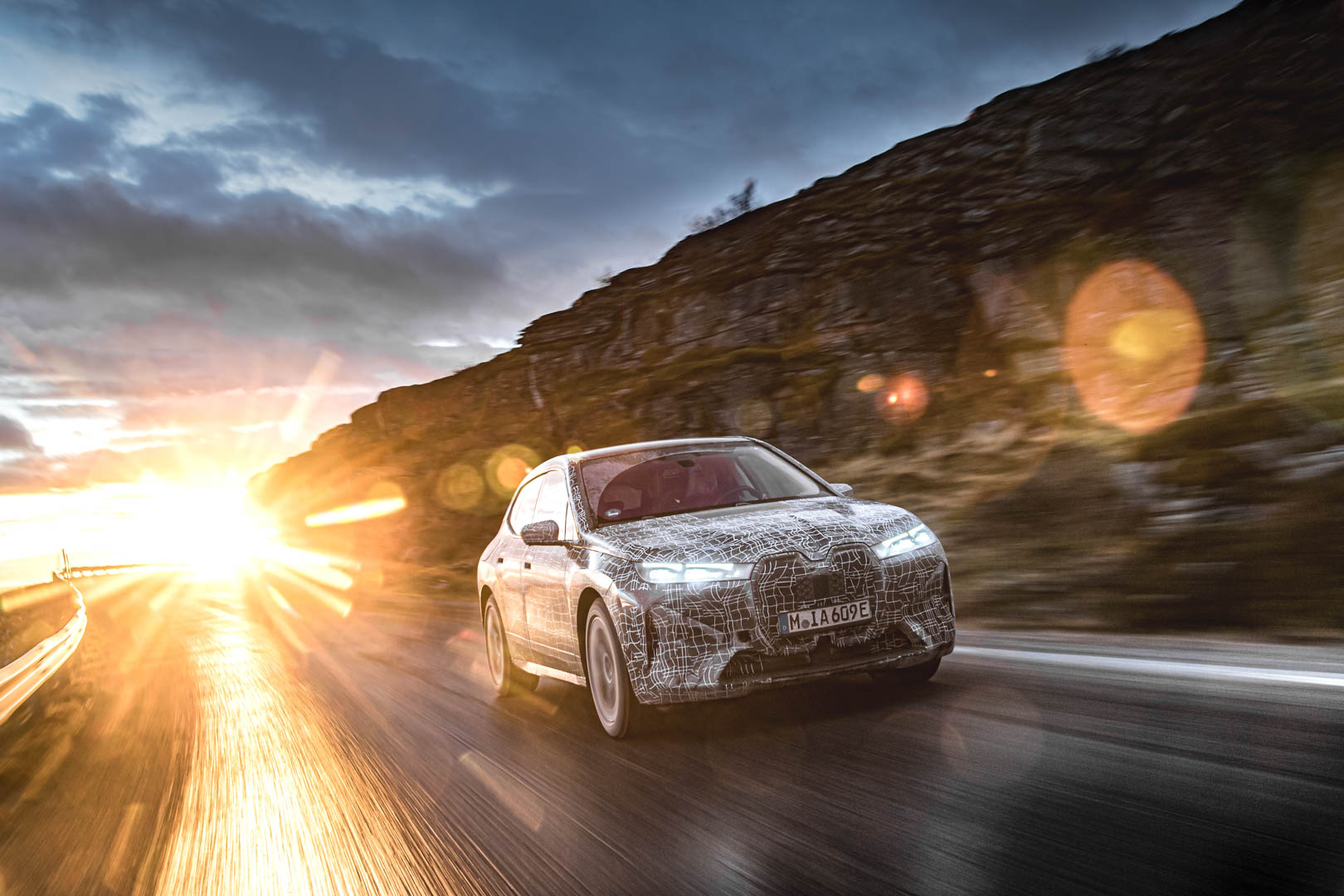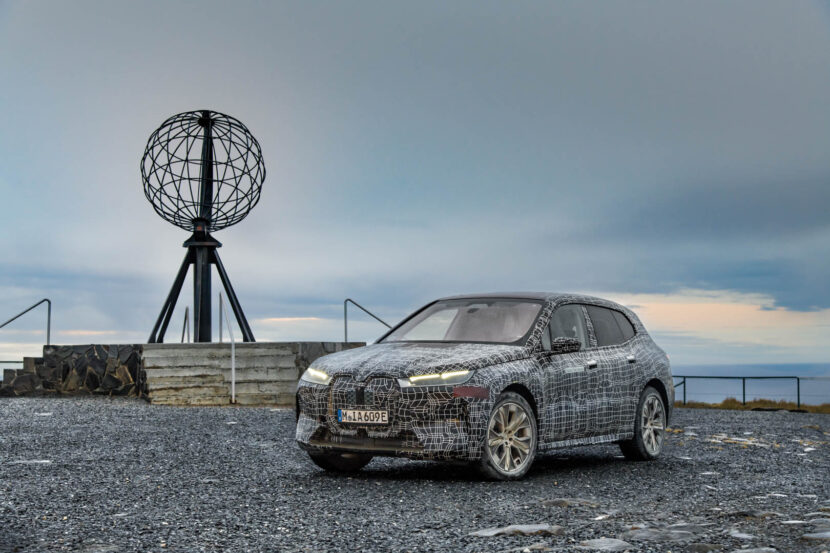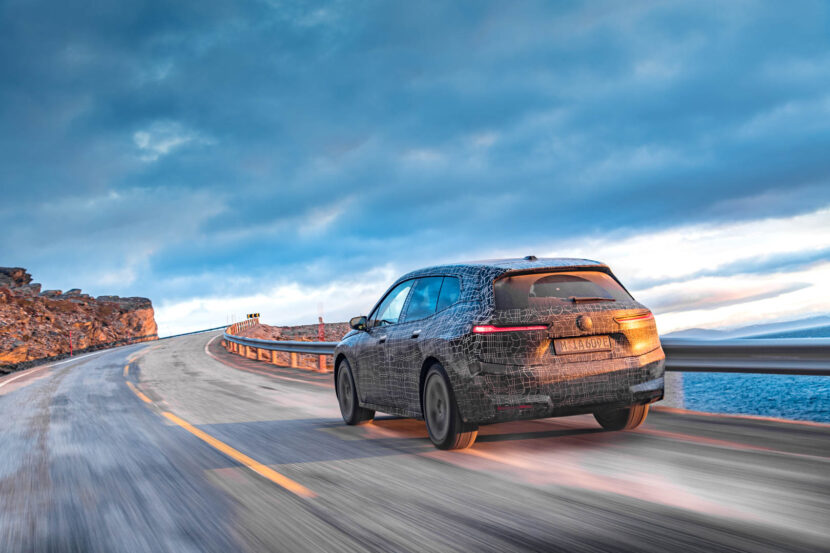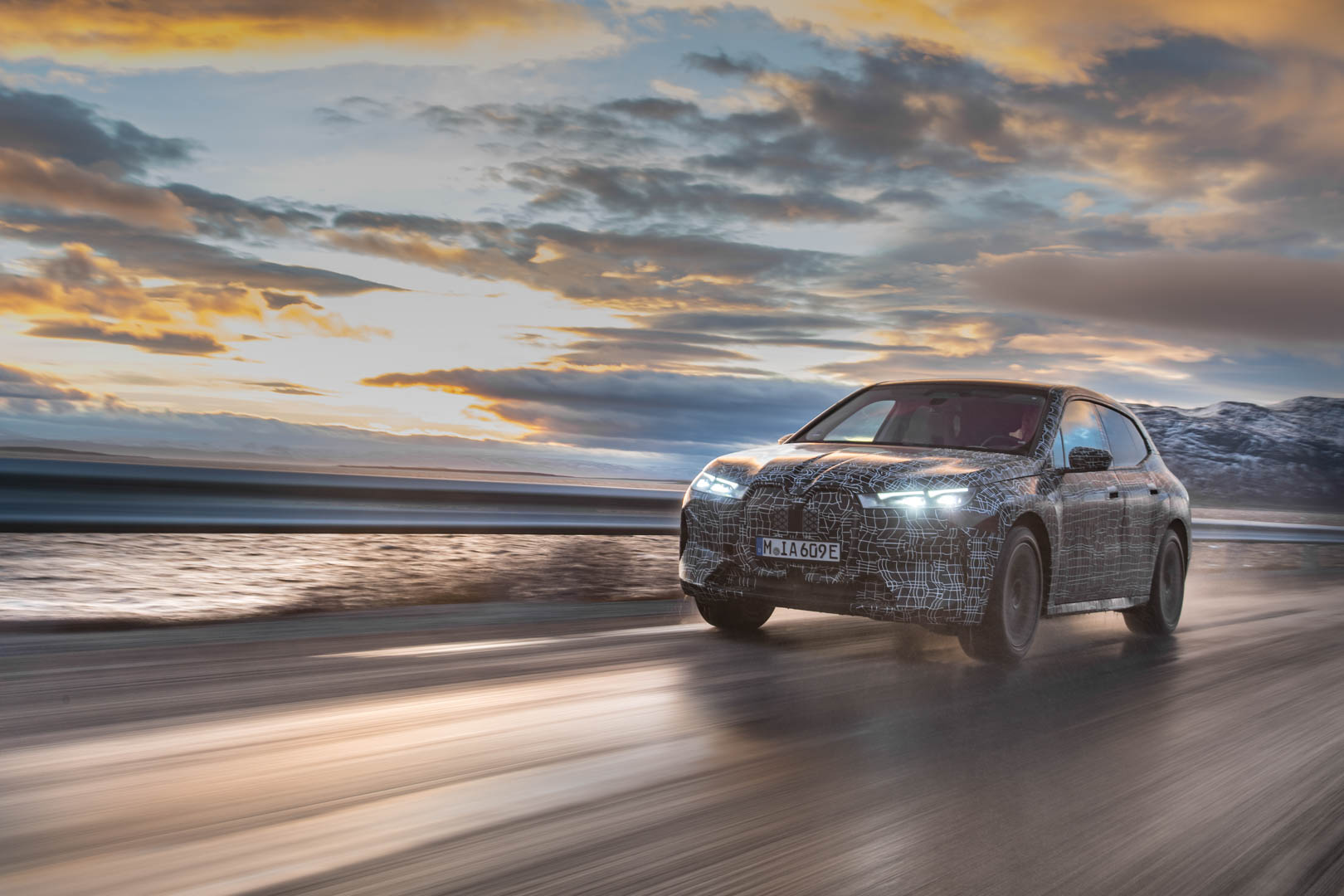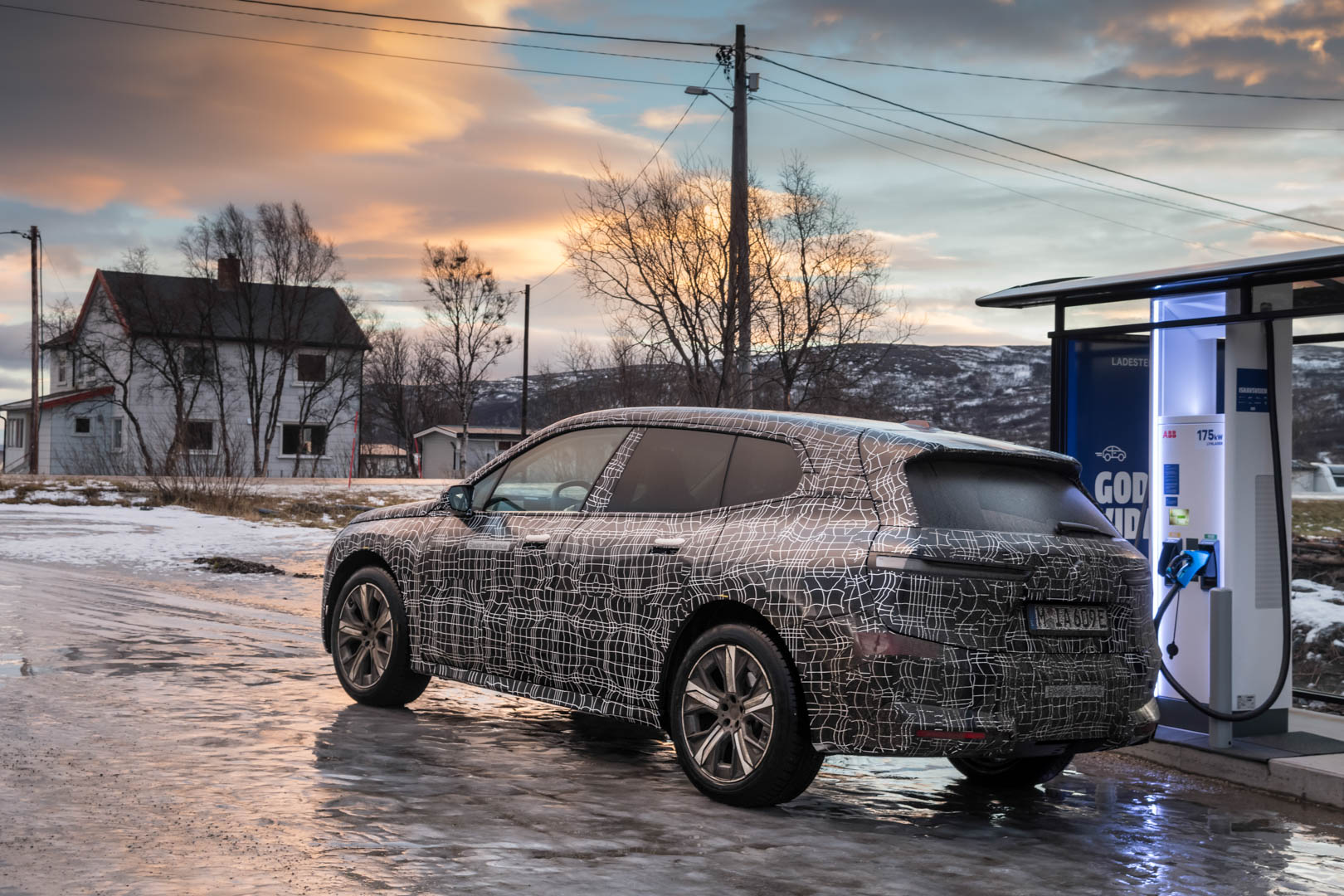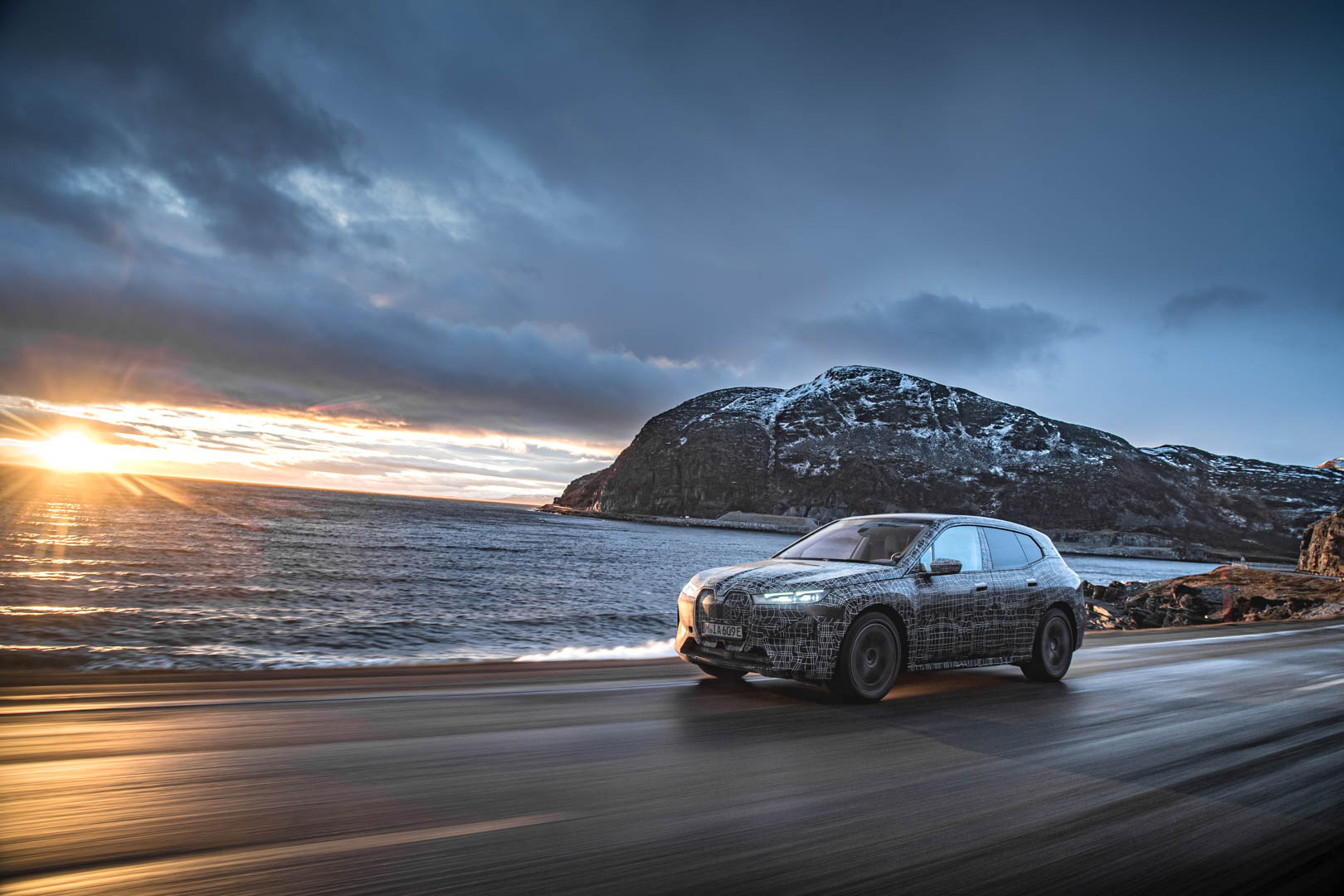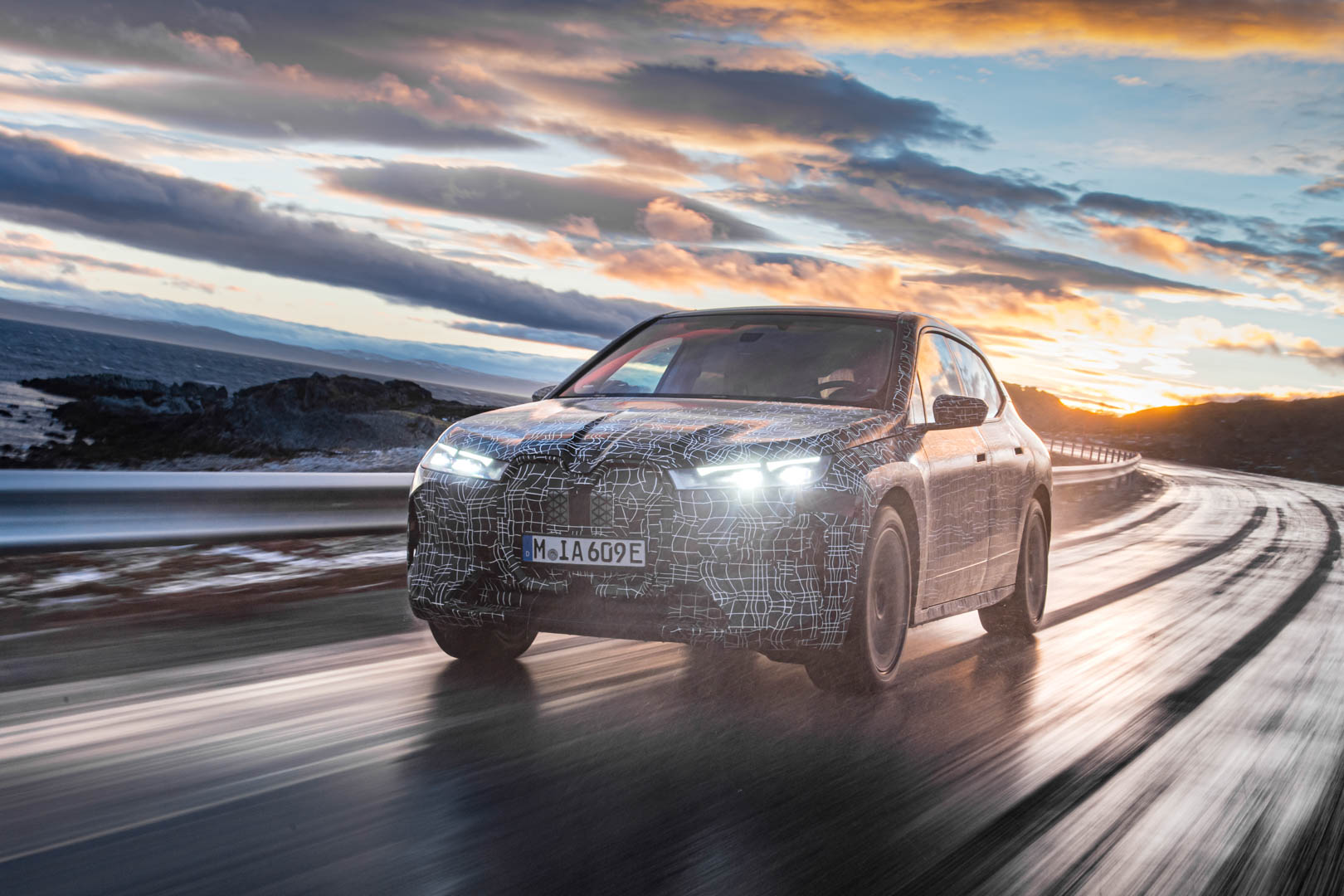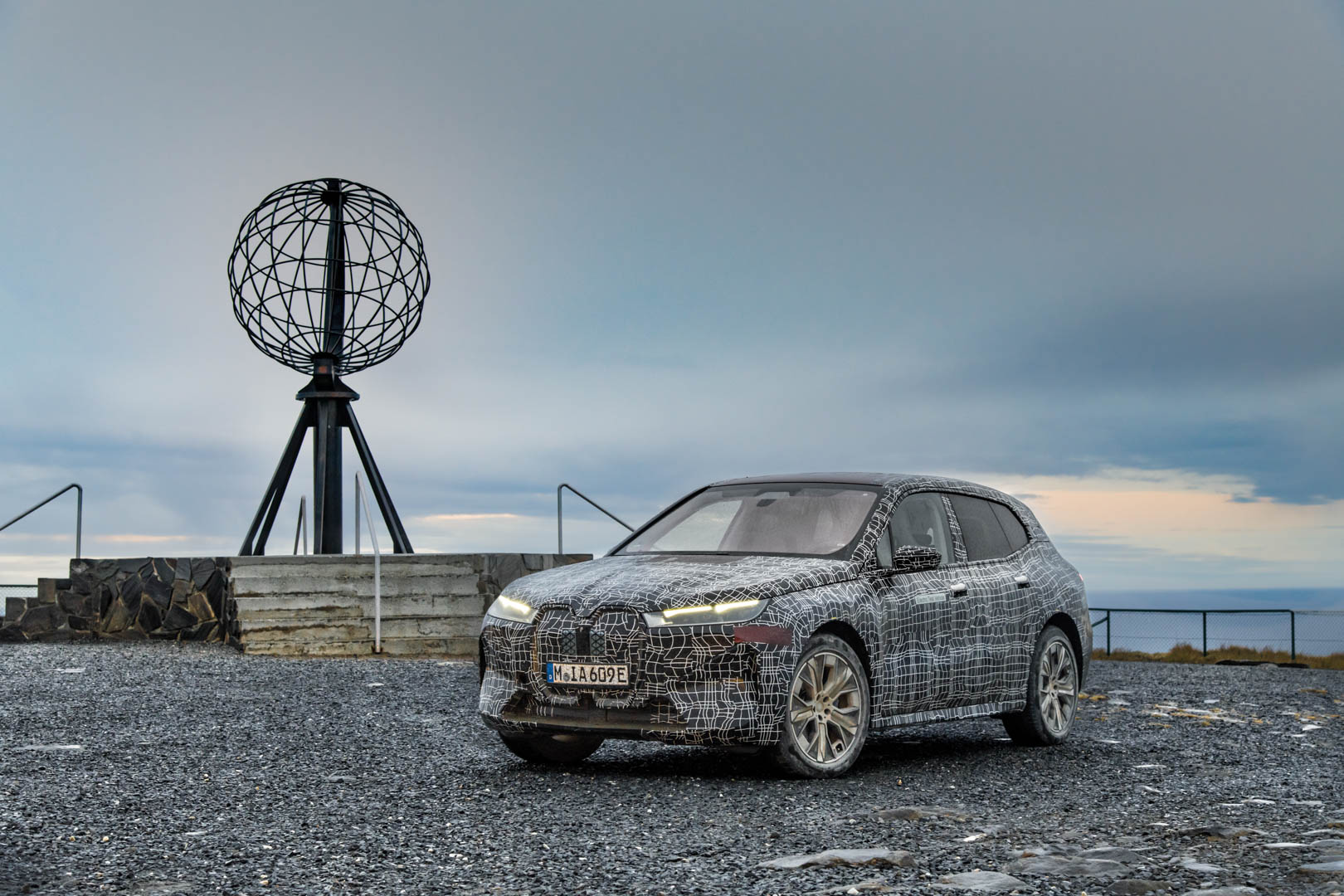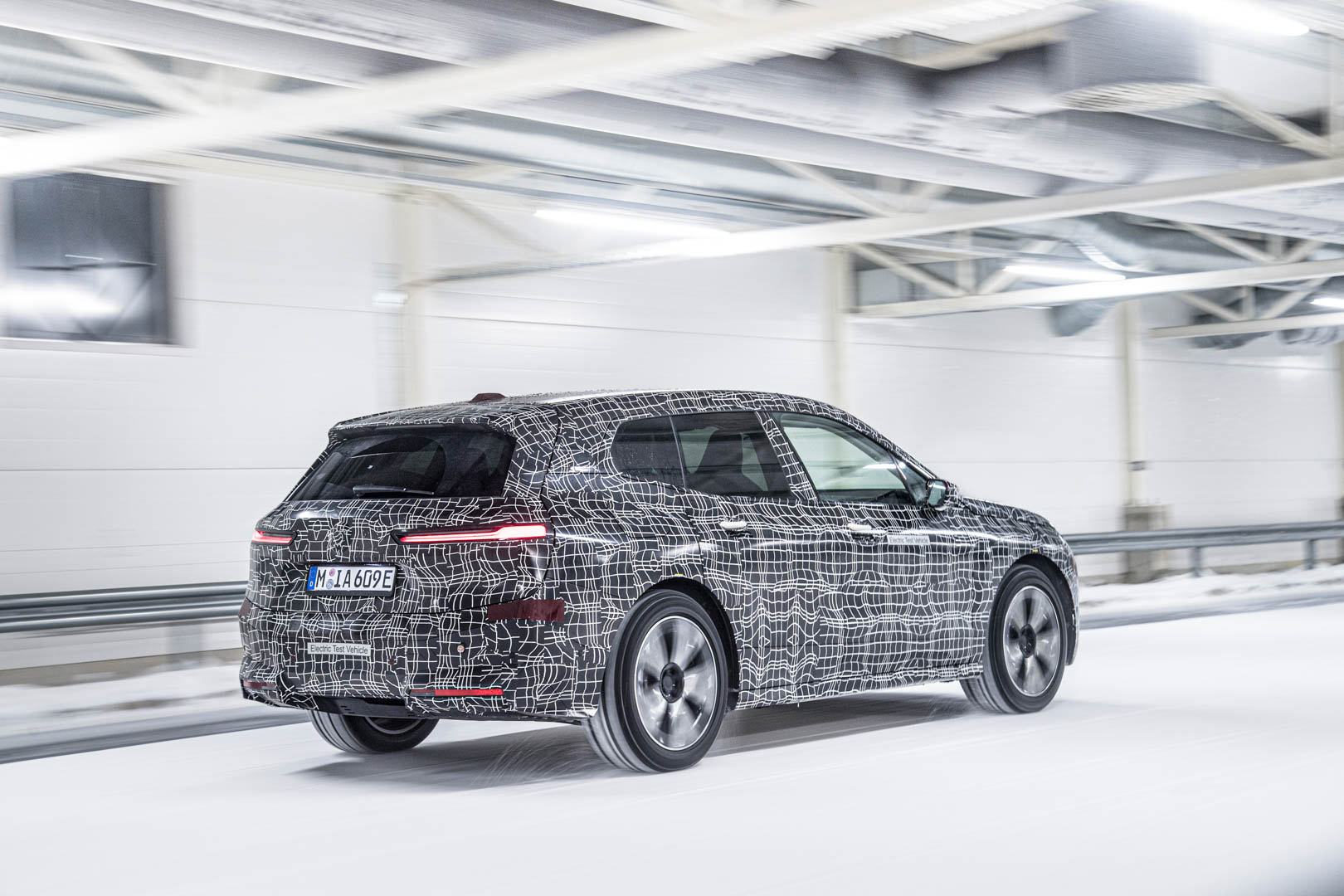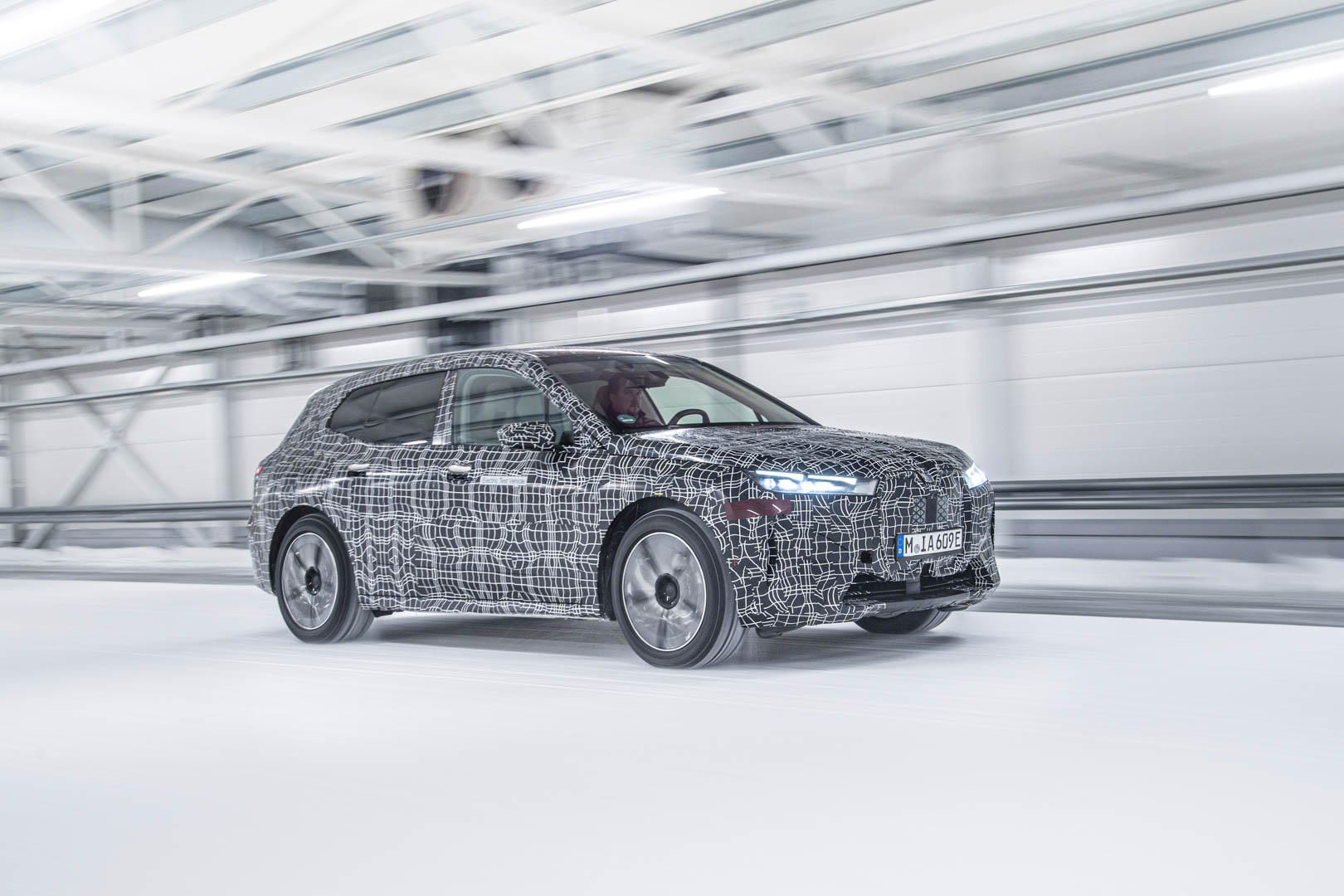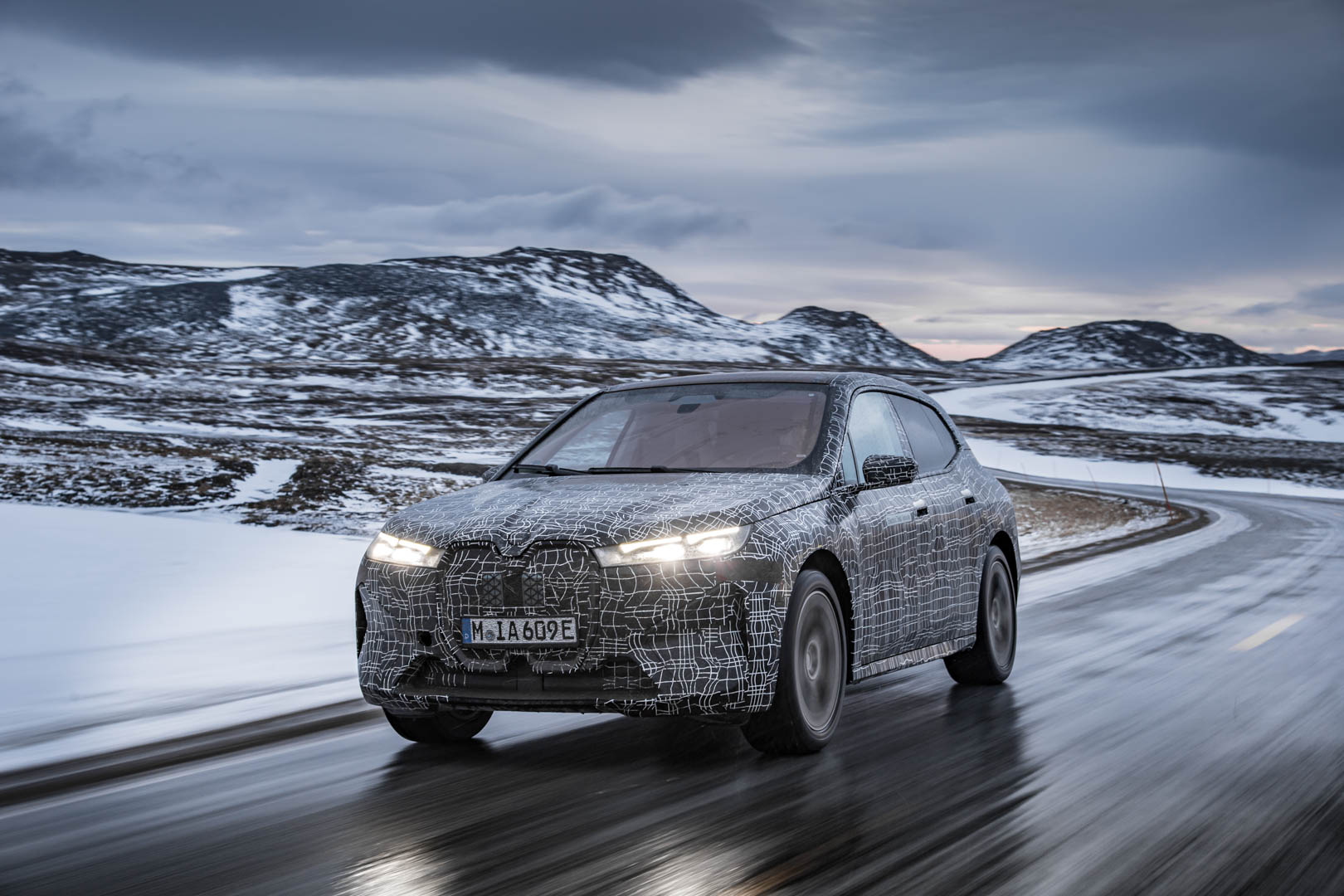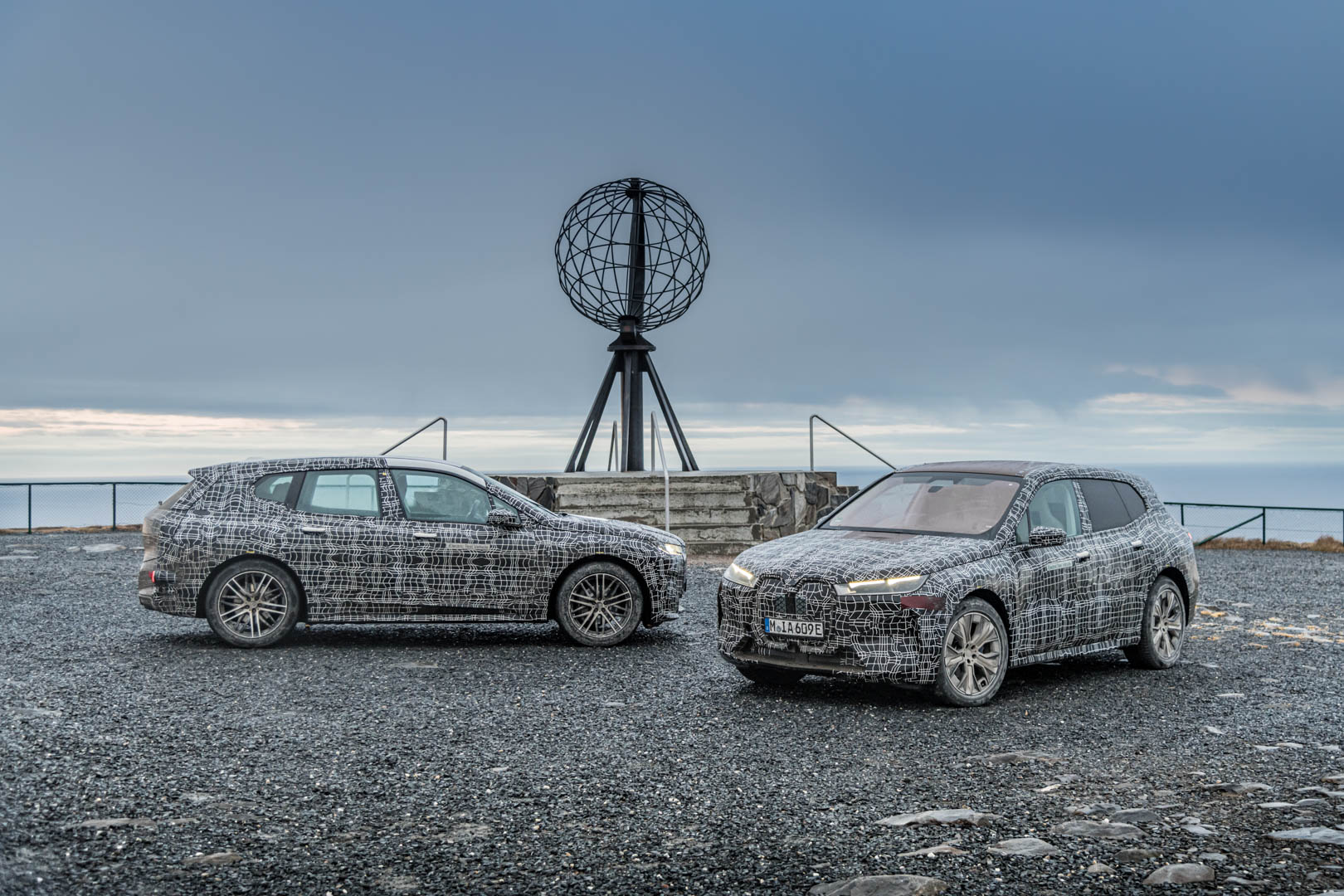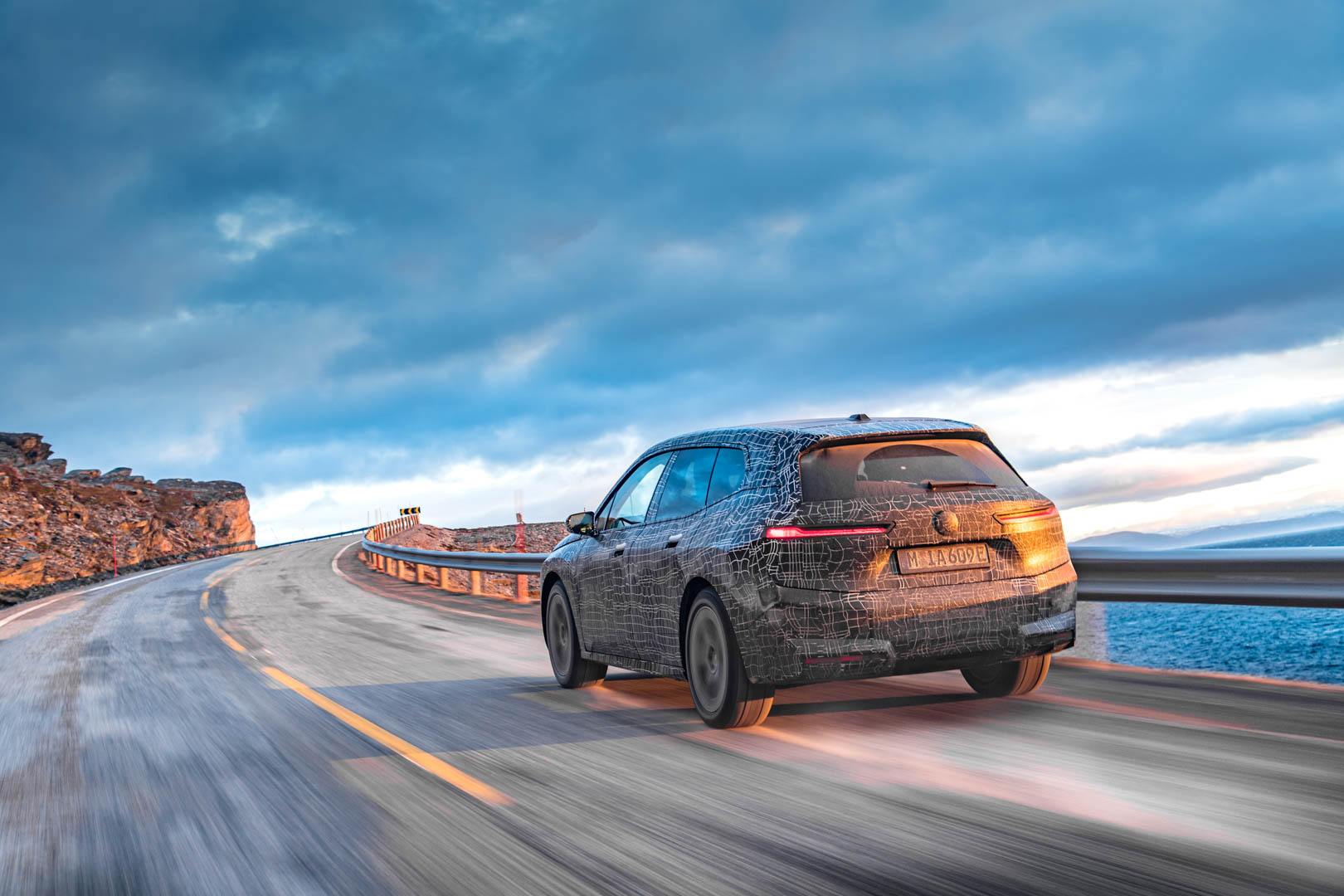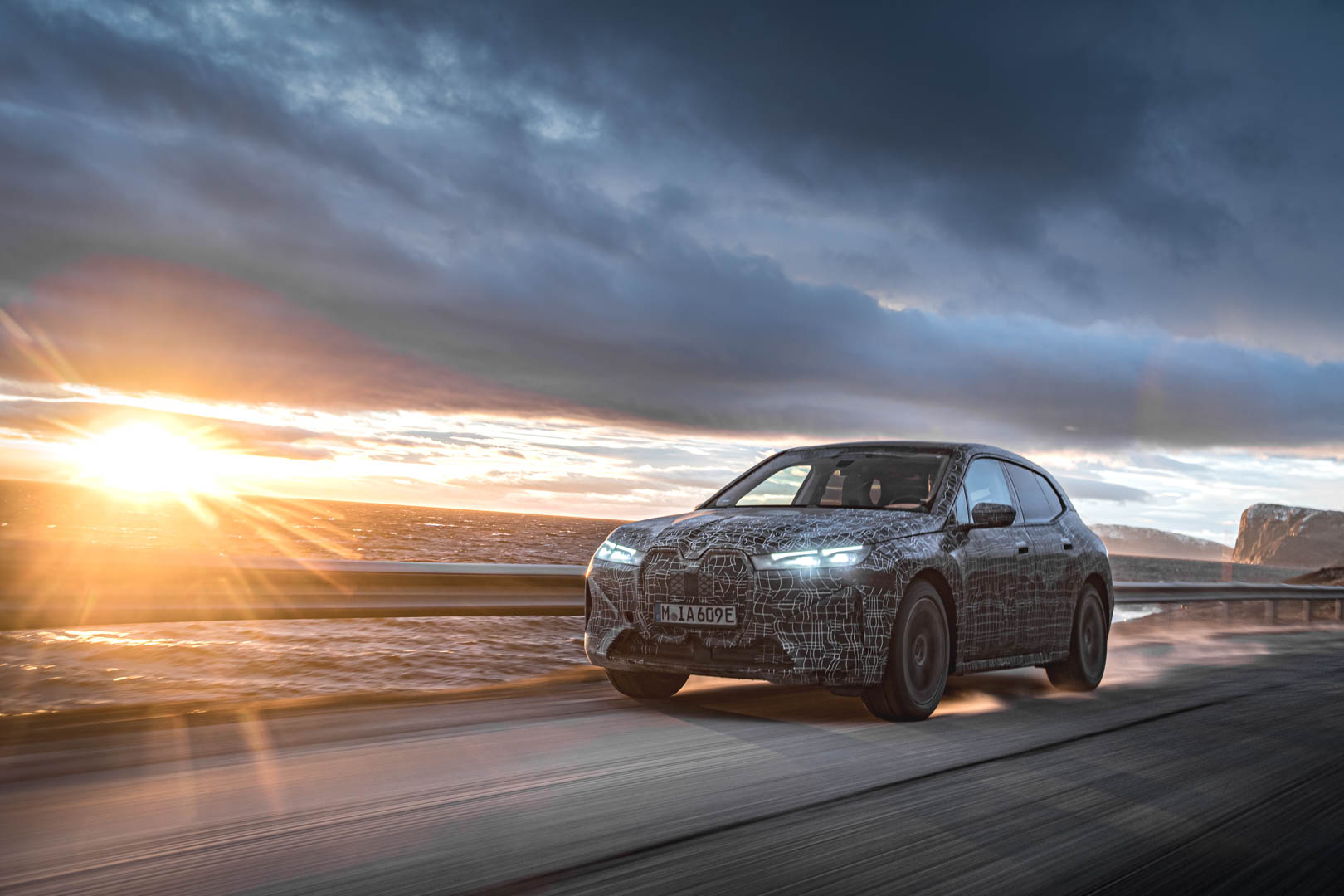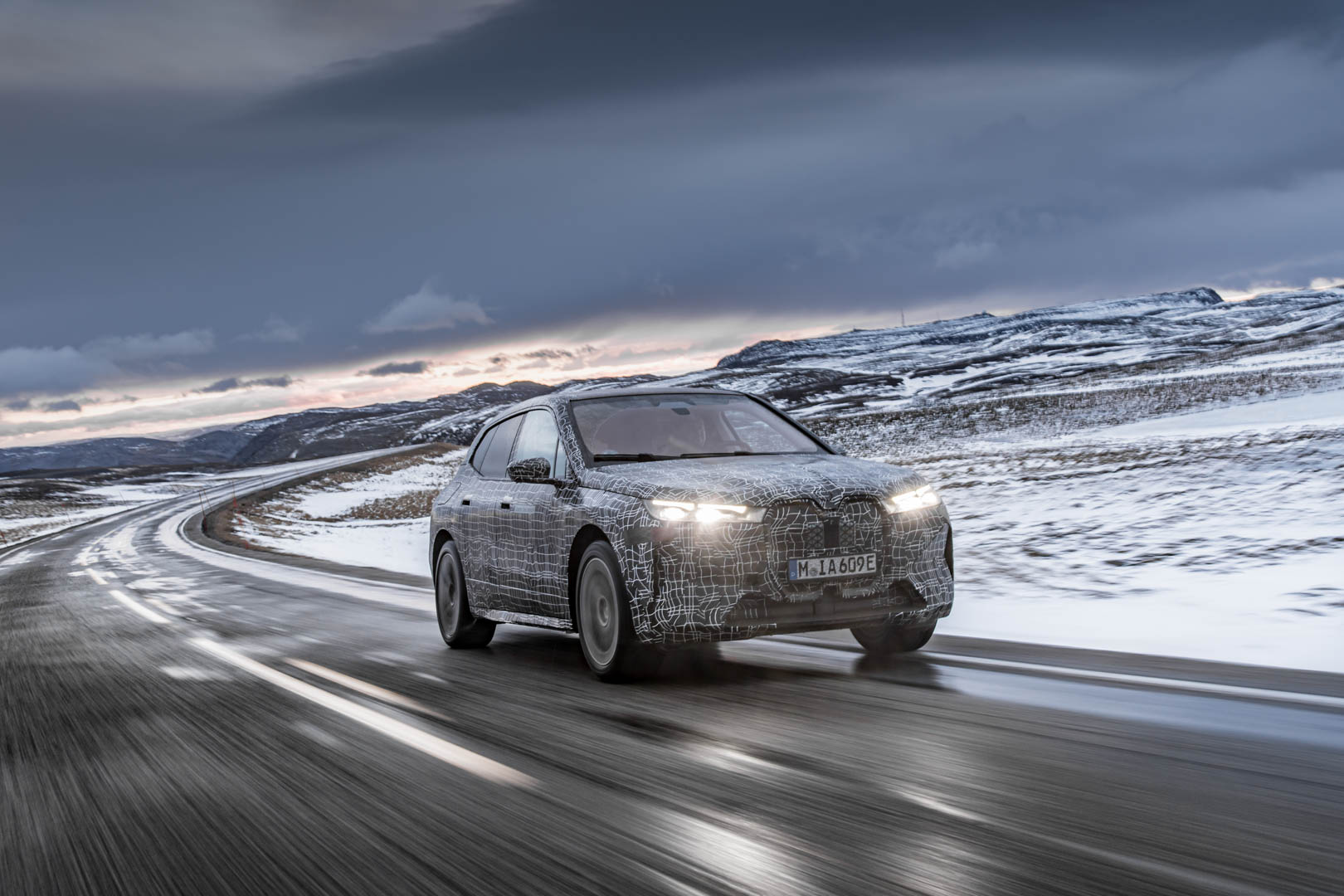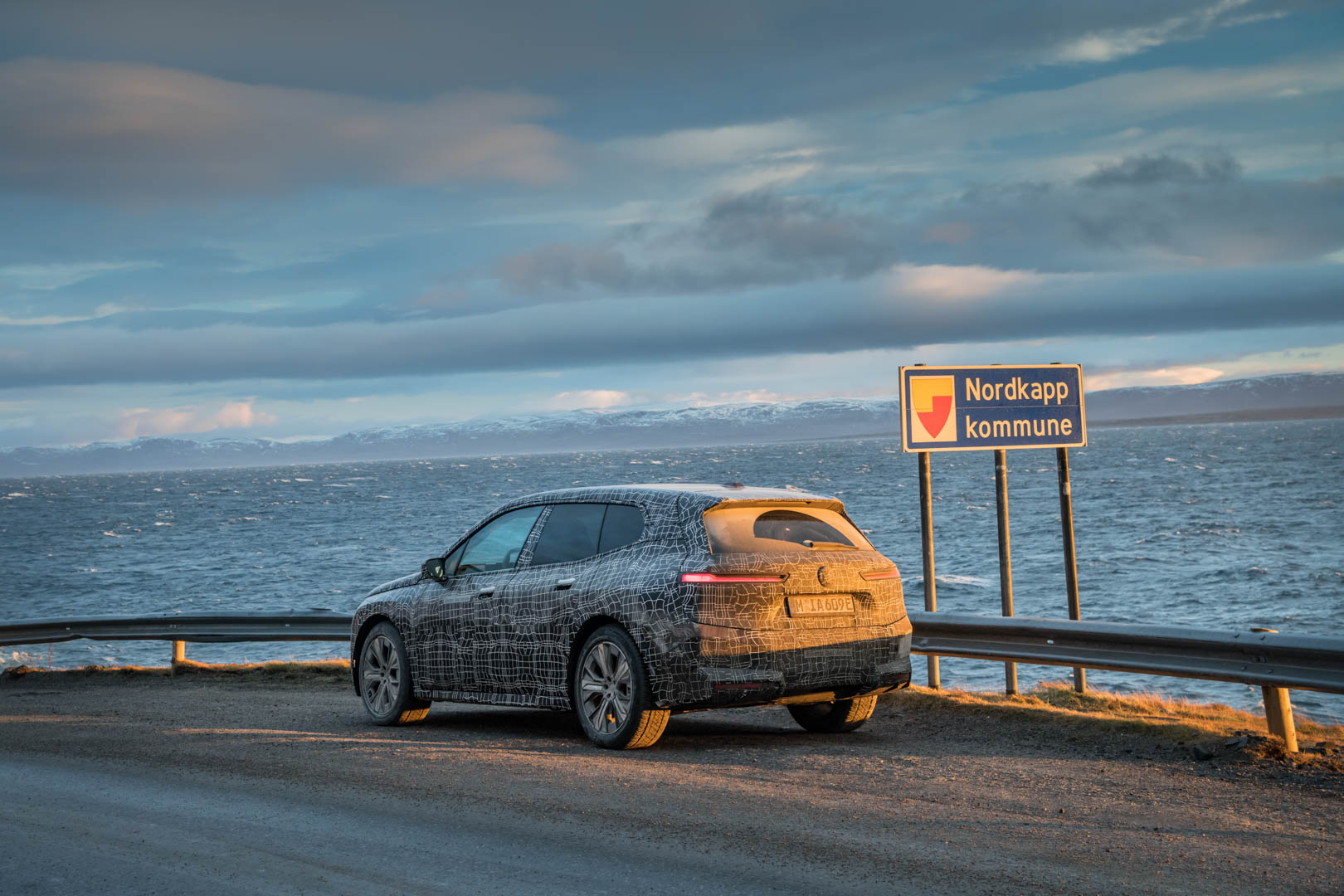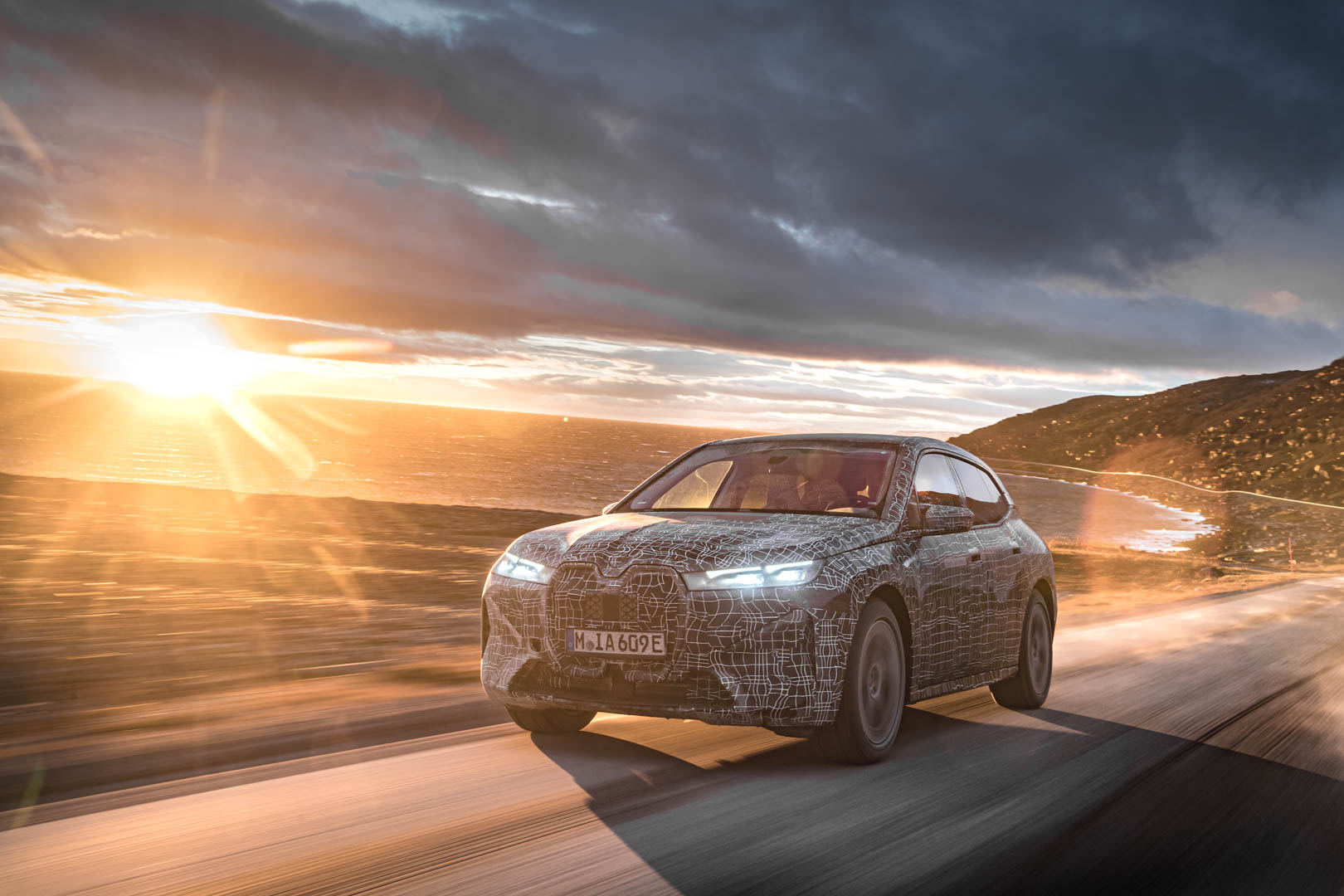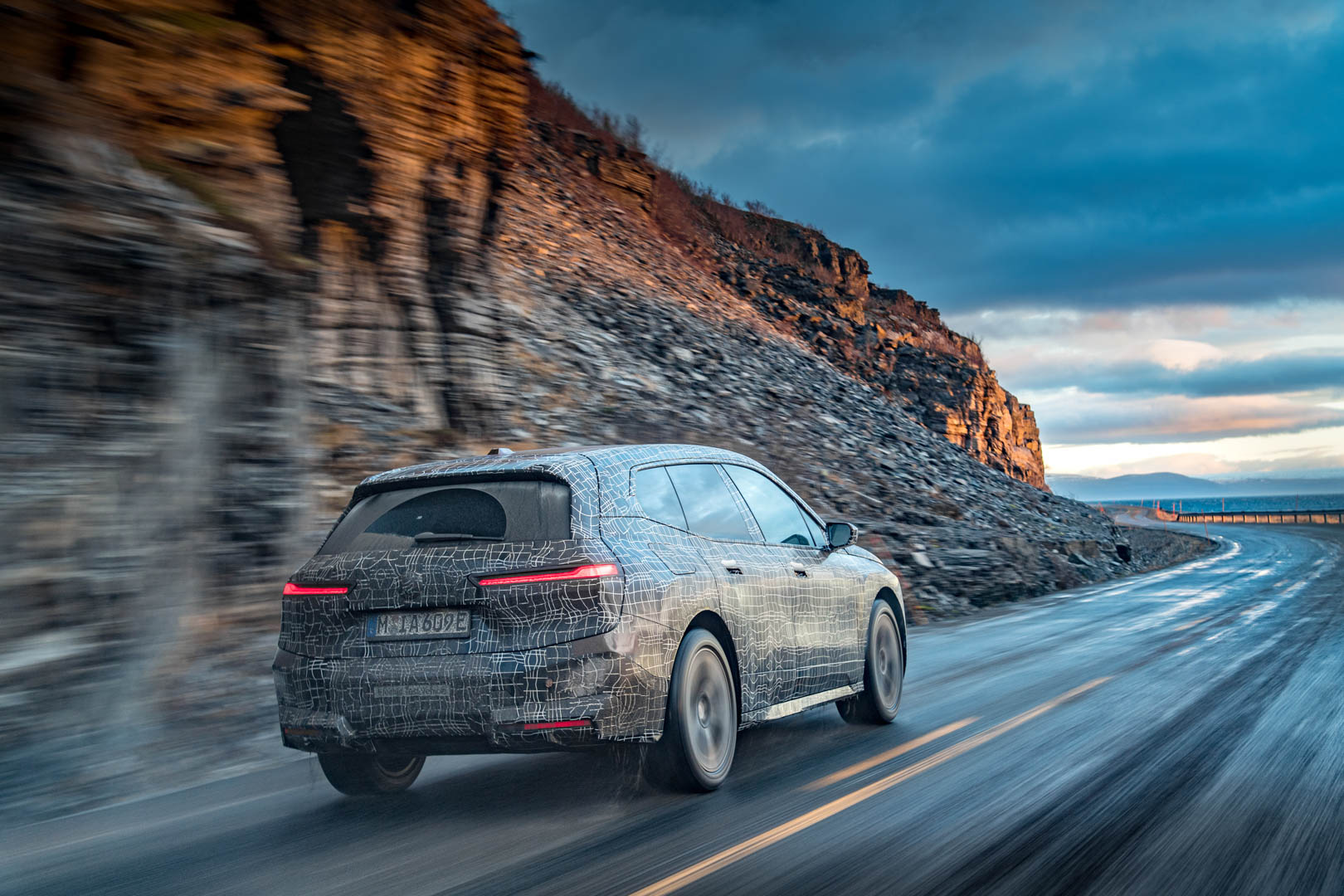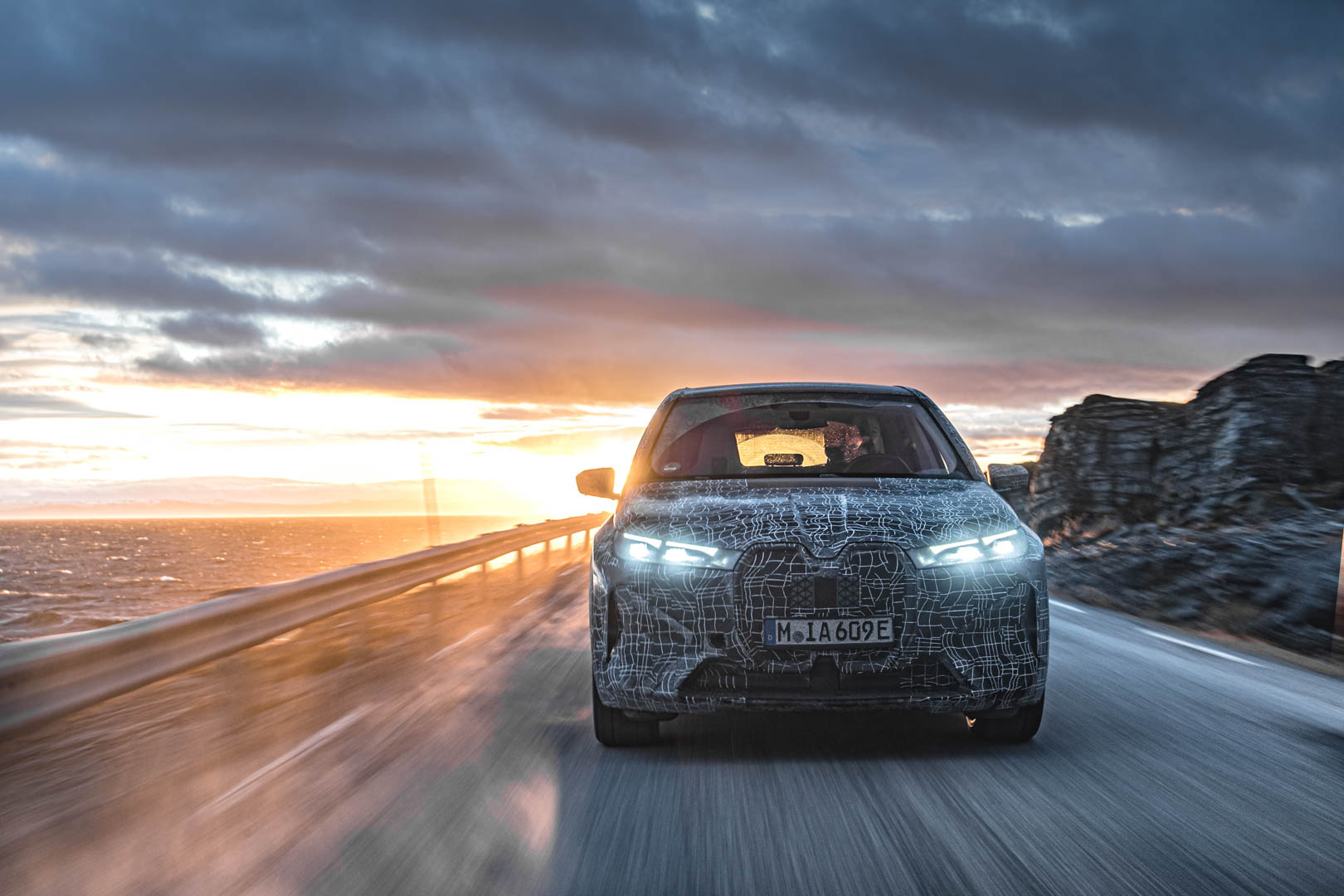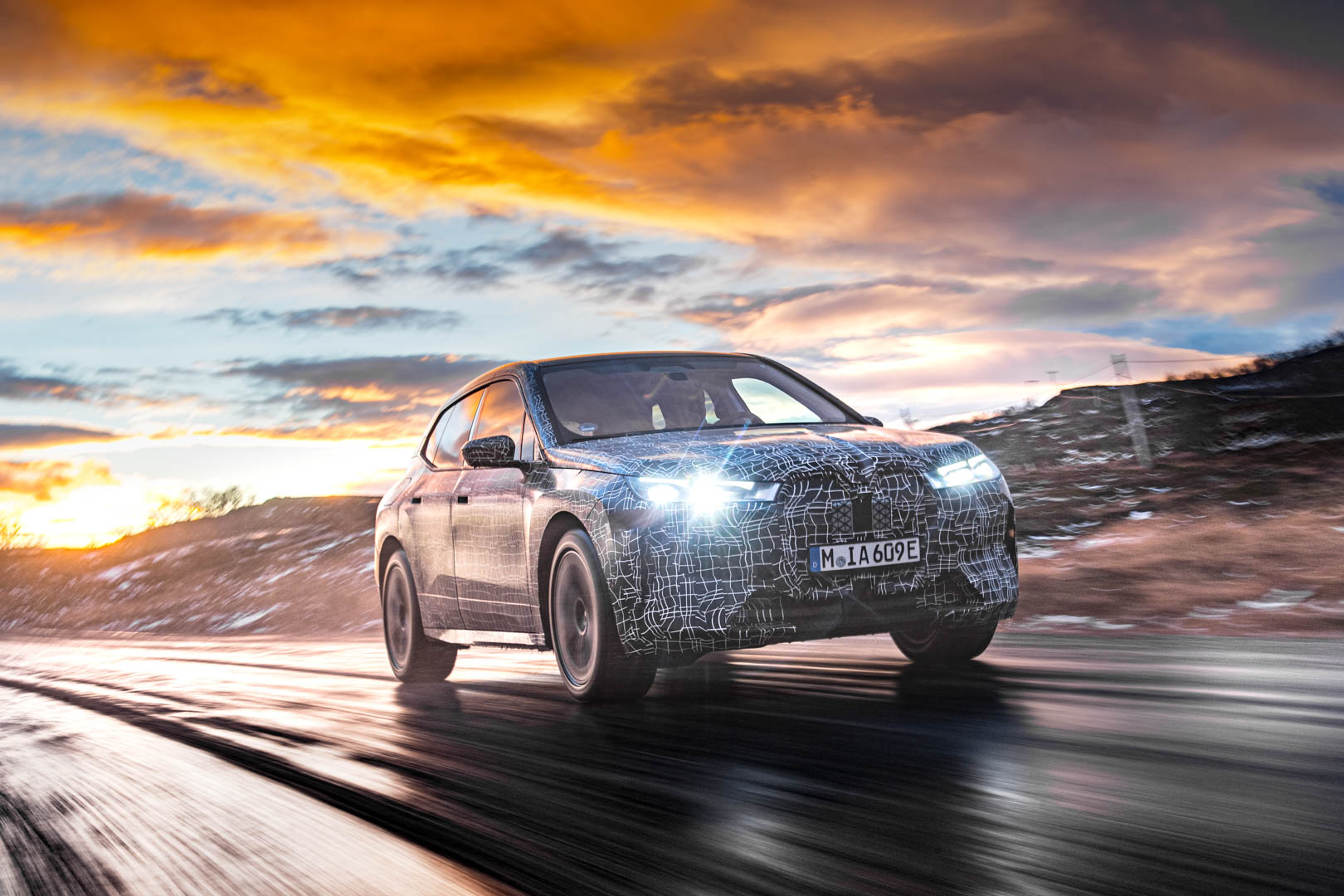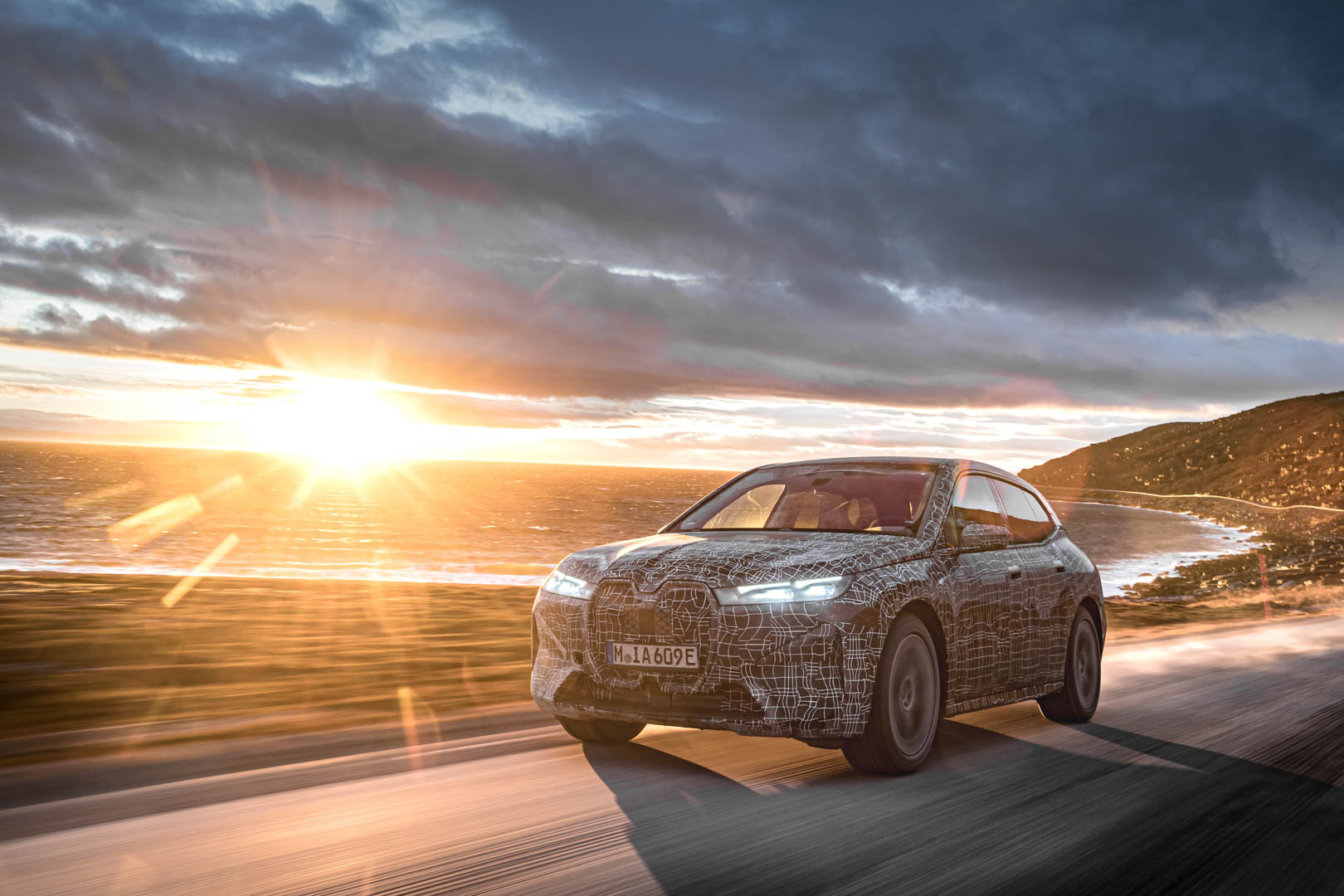BMW has already unveiled the iX, its most advanced, long-range EV to date. However, despite having already shown off the production car, the Bavarians are still doing final testing on it, before it goes on sale. So the BMW iX is currently up in the North Cape, in Norway, doing some final winter testing.
As with all cars, the BMW iX needs to be tested in the harshest of climates, including sub-zero temperatures. Everything from the electric motors to the four-wheel drive system and battery pack need to be tested in extreme cold, to ensure they can function, regardless of ambient temperature or weather conditions.
It’s not just electric or battery components that need to best tested. All aspects of the car need to be subjected to extreme cold to see how they hold up. So the suspension, brakes, steering components and other mechanical bits need to work properly, even when temperatures get to frightening levels.
This isn’t really anything new. Car companies often test their cars in extreme conditions, ensuring their durability even in conditions far worse than they’ll ever realistically see. The idea is that if they can handle the Arctic Circle, which the BMW iX is currently braving as we speak, then it can handle a winter in Munich with ease.
Durability isn’t the only test, though. BMW is also doing final xDrive all-wheel drive calibration in the North Cape. Those icy, snowy, slippery conditions can help BMW calibrate the all-wheel drive system for cold climates.
When the BMW iX makes its debut, it will have a maximum of over 500 horsepower from its two electric motors and over 600km of range on the WLTP cycle. Hopefully, it will be enough to make BMW a genuine contender in the world of EV SUVs, as it’s already a bit late to the party.


